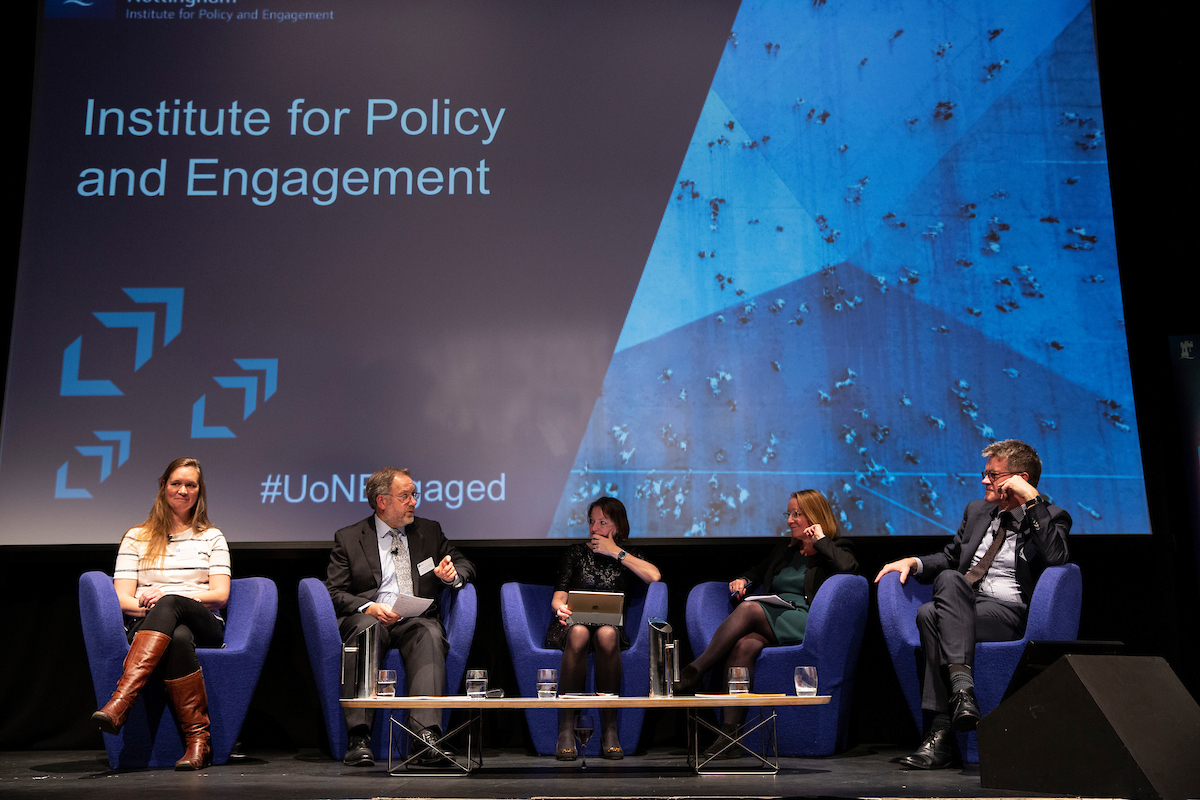
November 1, 2019, by Rob Ounsworth
High-profile guests and fascinating spiders join launch of Institute for Policy and Engagement
The University’s Institute for Policy and Engagement was officially launched this week in London, where Professor Shearer West welcomed around 140 guests including leading policymakers, representatives from industry, funding bodies and community and national organisations.
Professor West, Vice-Chancellor and President of the University, told guests at King’s Place: “The mission of the Institute – to support the exchange of knowledge and ideas to enrich policy making, inspire people, support communities, transform lives and shape the future – speaks very much to my vision of the role of a University: excellent teaching, outstanding research, and actively engaged in the world around it. A University without borders.”
Universities had a vital role to guide people through a complex and rapidly changing world, she said, adding: “We need to earn trust and not assume our authority will be automatically recognised. We need to be partners, not lecturers, helping people understand their world and how they can be agents in it and make change, whether we are helping communities around us in Nottingham, or advising policymakers in Whitehall.”
Director of the Institute Stephen Meek had earlier outlined its mission: “We are a gateway to connect policymakers and the public with research carried out at the University; but we’re also hear to hear what policymakers and the public need.”
‘Why should you trust me?’
The Vice-Chancellor went to introduce three speakers who explored the theme “why should you trust me?”, from different perspectives:
- Deborah Mattinson, the founding partner of the international insight and strategy consultancy Britain Thinks, gave at times challenging insights into the decline in trust in our institutions. Universities fare better than most (and far higher than politicians) in public perception of competency and trustworthiness, she said, but we have a lot of work to inform wider understanding of our contribution to the UK economy and society.
- Professor Robin Grimes, the Ministry of Defence’s Chief Scientific Adviser on nuclear science and technology, gave the perspective from Government, as a consumer of evidence. Robin, who is Professor of Materials Physics at Imperial College, is an alumnus of Nottingham (Physics, 1982).
- Dr Sara Goodacre, a research geneticist who established the ‘SpiderLab’ at the University in 2007 to study the evolution of spiders, reflected on how public engagement in research helps open up bigger questions. Dr Goodacre brought along some spiders from her lab to ensure she had the audience’s full attention!
As Professor Alex Conradie, Director of the Green Chemicals Beacon Tweeted (#UonEngaged): “An implicit masterclass in how to engage an audience.”
At the launch, policymakers also had the opportunity to meet our academics who work with the Institute to amplify their transformative impact on UK legislation and policy.
Many of these academics are profiled in the new edition of Vision, the University’s research and knowledge exchange magazine, which is themed Society: research, policy and changing lives, and was launched at the event:
Read Vision online. To receive e-updates and/or a print copy please subscribe.
Find out more about the Institute and get involved:
Twitter: @UoN_Institute
Email: theinstitute@nottingham.ac.uk
Visit: www.nottingham.ac.uk/policy-and-engagement/home
Sign up to the Institute’s newsletter to keep up-to-date on events such as its public lecture series and opportunities to engage with policymakers.
Book now
The next speaker in the public lecture series: Ben Page, Chief Executive of Ipsos MORI, will be discussing the state of society and public services in the UK and challenges for the 2020s.
Professor Liz Sockett FRS will be delivering her lecture Predatory bacteria: natural killers of problematic pathogens on 21 November as part of the Institute’s Science Public Lecture series.
Nottingham Festival of Science and Curiosity, 12-19 February 2020
No comments yet, fill out a comment to be the first

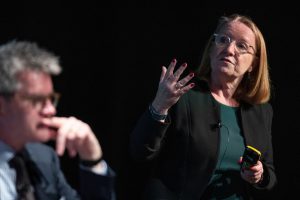
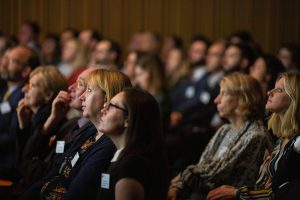
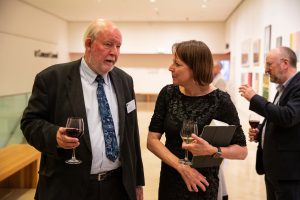
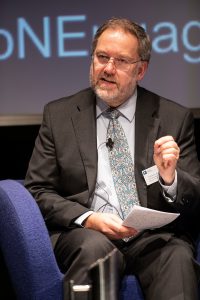
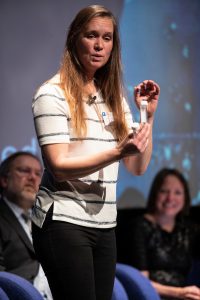

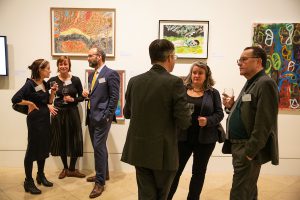
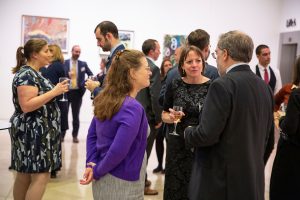
Leave a Reply